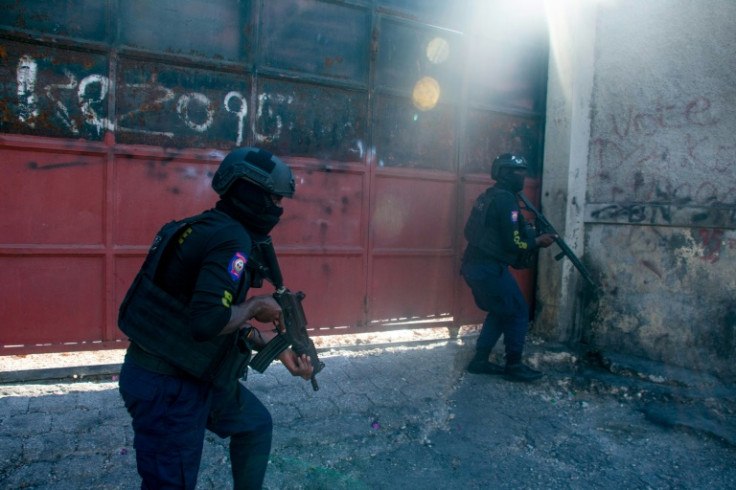
Haitian police leaders met with Kenya's general police inspector as the deployment of an international force led by the African country to counter widespread violence in the Caribbean one is seemingly near after many delays.
"We are ready and committed to helping when needed," said the Kenyan official, Japhet Koome, during a meeting in Nairobi. Haitian police also met with the commanders of the 1,000 Kenyan officers who would lead the force if finally deployed. Overall, the group is set to be comprised of some 2,500 officers also coming from countries such as Jamaica, Bangladesh and Chad.
Forces were supposed to start arriving on May 23 to coincide with a visit by Kenyan President William Ruto to the White House. However, the decision was postponed on different occasions due to legal challenges in Kenya and doubts about the role they will play in Haiti.
Kenya will also host Haitian police to provide training. Haiti currently has about 4,000 officers on duty, a figure that pales to the approximately 38,000 the Untied Nations say the country needs to achieve median levels of policing.
However, other challenges remain. The operation continues to be far from financially solvent, having received a small portion of the $600 million estimated to be needed, according to the latest information available.
And there is renewed confusion about whether the foreign cops will be tasked with fighting the gangs that control large swaths of the capital, Port-au-Prince, or if they will protect key government infrastructures like the airport, seaport and the presidential palace.
One key reason for this could be the escalating violence in the territory, especially since a late February surge. According to an analysis piece by InSight Crime, the protracted deployment is giving the criminal organizations more time to prepare for what is anticipated to be a fierce response.
Nonetheless, the steps forward come as the country replaced its police chief, appointing Normil Rameau instead of Frantz Elbé, who faced heavy criticism for what critics say is a failure to protects officers struggling to face heavily armed gangs wreaking havoc in the country.
More than 2,500 people have been killed in the Caribbean country in the first three months of the year, especially since late February, when criminal organizations escalated their attacks seeking the removal of now former prime minister Ariel Henry.
Figures have continued increasing since, among them over 20 police officers who are fewer and less-equipped than the gangs they are fighting against. The latest fatalities took place last week, when three officers from a newly-formed anti-gang tactical unit were targeted while traveling in an armored vehicle. A fourth remains missing.
© 2024 Latin Times. All rights reserved. Do not reproduce without permission.







